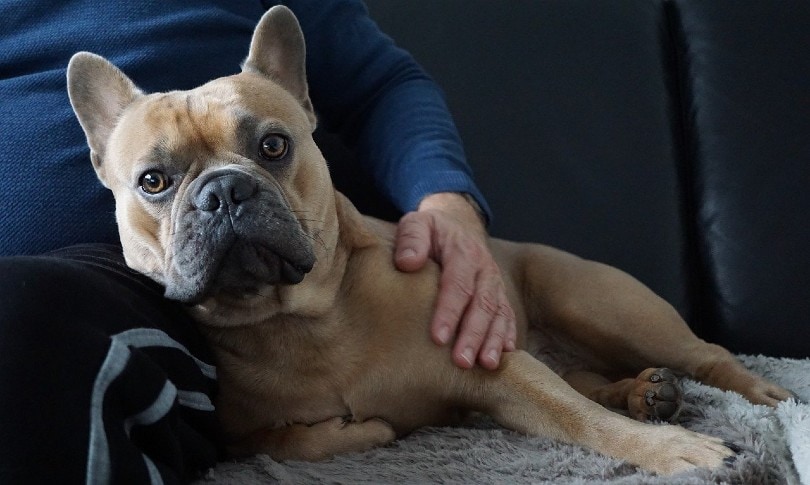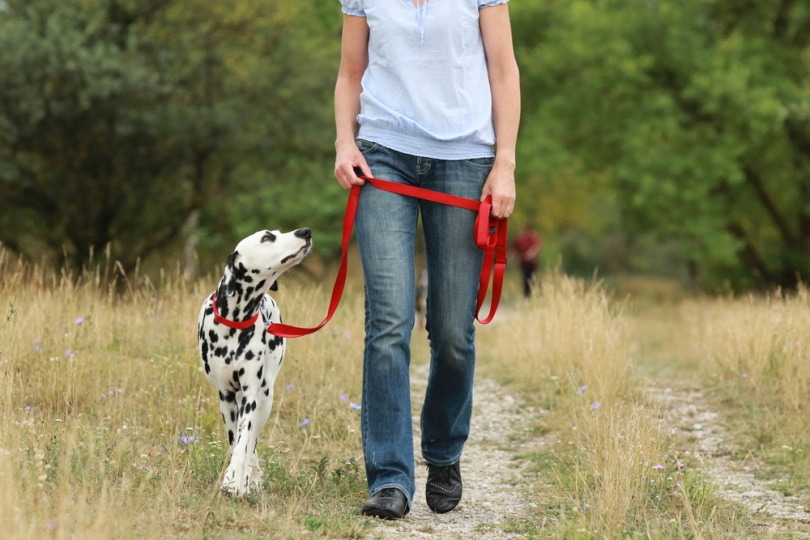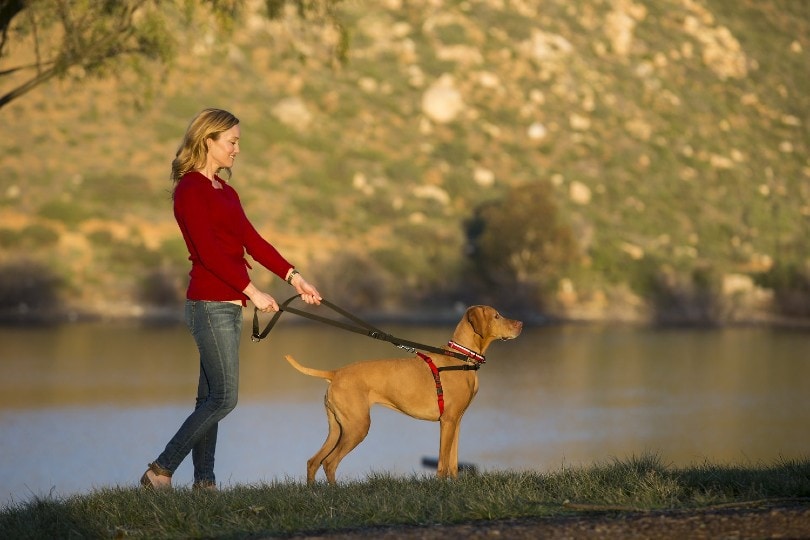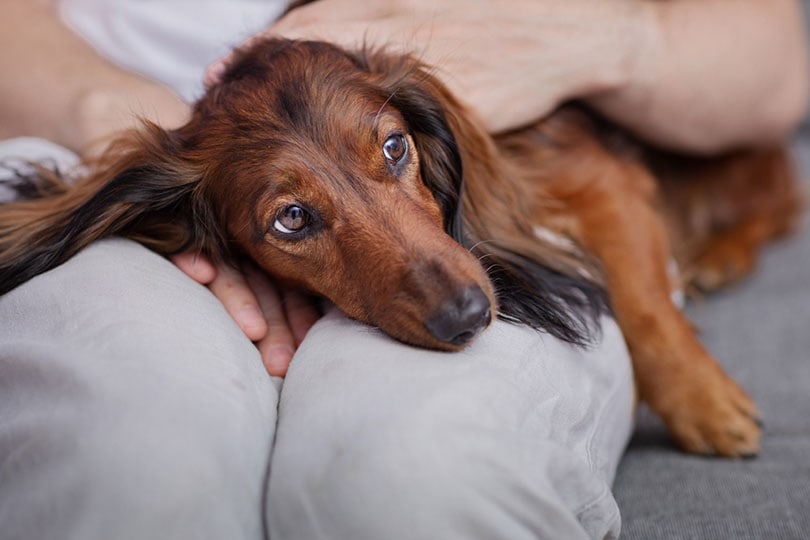Click to Skip Ahead

The 3 Reasons Why Dogs Thrive on Routine
When dogs are given a consistent routine, you’ll have a higher chance of developing positive and healthy habits for your dog. Here are some things you may notice once your dog gets acclimated and adjusted to a good routine.
1. Reduced Anxiety
Routines can help anxious dogs settle down because they help them know what to expect. Since dogs and humans don’t share the same language, a routine is an excellent alternative to maintaining clear communication with a dog. It reassures your dog that all its needs will be met every day.
When you establish a consistent routine with your dog, you may start to notice your dog anticipating what’s next on the schedule. Your dog’s trust in you will also increase, which can decrease stress and anxiety. This is especially helpful whenever you must leave the house for work or other events because your dog will trust you’ll eventually return home.

2. Easier Training Sessions
Incorporating behavior training and rules into a daily routine can help dogs learn faster. Obedience training and routines go hand in hand. Adding training sessions to specific parts of the day is valuable, and being consistent with rules all throughout the day helps dogs to remember everything they learned in training.

3. Faster Housetraining
Routines can also help dogs succeed with potty training more quickly. Designating specific times of the day to let your dog out to relieve itself will reduce the probability of having accidents in the house. This habit will also help your dog learn that it will be given multiple opportunities to go outside.


How To Make a Routine for Your Dog
If it’s your first time creating a routine for your dog, expect to dedicate several weeks to help your dog fully adjust to its routine. You don’t have to adhere to strict time blocks for your dog’s routine. Sticking to the same sequence of events is more important than doing things precisely on time.
First, create a layout of a daily schedule that you follow frequently. For most people, this will be a schedule that revolves around a workday. Once you’ve laid out the basic tasks you have for this day, start to incorporate tasks you have to complete with your dog. Examples would be daily walks, feeding times, and training sessions.
When building a routine for your dog, it’s best to include some sort of exercise in the morning. This will help your dog expend some pent-up energy and feel more relaxed throughout the day.
Once you’ve created a schedule, do your best to do everything in the same order for the next several weeks. For example, if you plan to walk your dog before breakfast, don’t change the order and give your dog breakfast before a walk.

It can also be helpful to temporarily stick to the same routine during weekends because it will help dogs to learn faster. Since dogs don’t have the concept of weekends, a different routine on a Saturday will feel sudden and confusing.
After several weeks, you should start to notice your dog getting used to its routine. You might see your dog waiting by its food bowl around designated mealtimes or by the door when it’s time for a potty break.
Fortunately, you can loosen up your routine after some time has passed. You can even start to develop a weekend routine to allow your dog to get used to experiencing some flexibility.
Routine doesn’t have to be boring, you can stick to the general flow of the day but change up games you play and places you walk for example. This is important for mental stimulation.

Conclusion
Dogs thrive on routine because they like to know what to expect. Routines can help your dog understand that all its needs will be met daily. Not only does this reduce anxiety and stress, but it also establishes trust and strengthens the bond between owners and their dogs.
So, make sure to develop a realistic routine that both you and your dog can stick to. With some time, you’ll be sure to see positive changes in your life with your dog.
Featured Image Credit: Leka Sergeeva, Shutterstock










